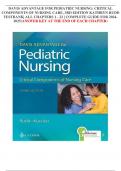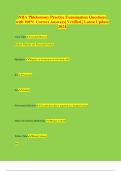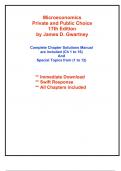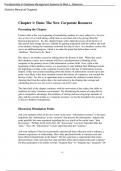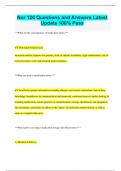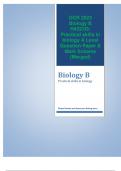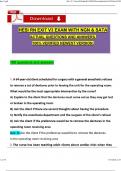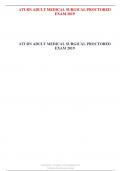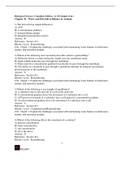Exam (elaborations)
DAVIS ADVANTAGE FOR PEDIATRIC NURSING: CRITICAL COMPONENTS OF NURSING CARE, 3RD EDITION KATHRYN RUDD
DAVIS ADVANTAGE FOR PEDIATRIC NURSING: CRITICAL COMPONENTS OF NURSING CARE, 3RD EDITION KATHRYN RUDD Chapter 1 Issues and Trends in Pediatric Nursing MULTIPLE CHOICE Identify the choice that best completes the statement or answers the question. 1. 2. ...
[Show more]
